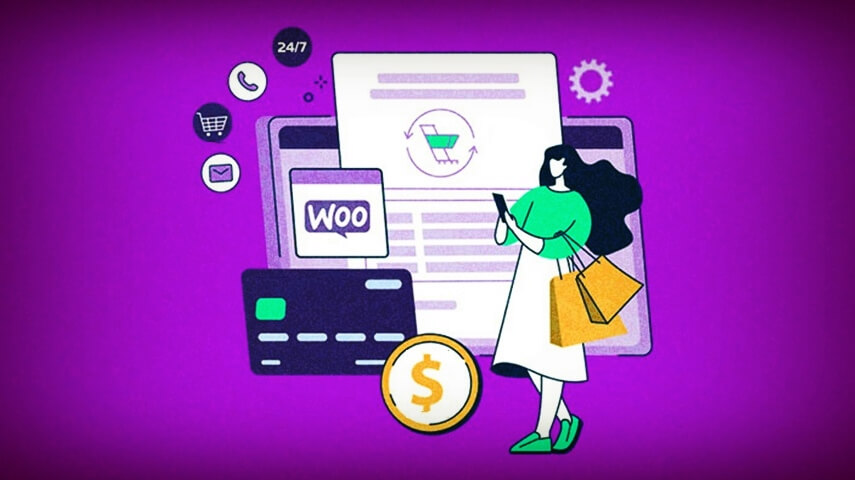The world of e-commerce has experienced tremendous growth in recent years. With the convenience of online shopping and the vast array of products and services available at our fingertips, it’s no wonder that consumers are increasingly turning to e-commerce platforms for their shopping needs. However, with this growth comes the need to ensure trust and security in e-commerce transactions. In this article, we will explore the key factors that contribute to building trust and security in e-commerce transactions, providing both consumers and businesses with the confidence they need to thrive in the digital marketplace.
The E-commerce Boom
E-commerce has become an integral part of modern life. Whether you’re ordering groceries, clothing, electronics, or even booking a vacation, chances are you’ve made at least one online transaction in the past year. According to Statista, global e-commerce sales are projected to reach 4.9 trillion U.S. dollars in 2021, with no signs of slowing down. However, with this growth comes the potential for fraud, scams, and security breaches that can erode trust in online shopping.
The Importance of Trust
Trust is the cornerstone of any successful e-commerce transaction. When consumers trust an online platform or retailer, they are more likely to make purchases, return for future transactions, and recommend the platform to others. Building and maintaining trust is not only crucial for individual businesses but also for the e-commerce industry as a whole.
Elements of Trust in E-commerce
- User-Friendly Interface: A well-designed and intuitive website or app helps users feel more comfortable navigating the platform. This includes clear product descriptions, easy-to-find contact information, and a smooth checkout process.
- Transparent Pricing: Consumers appreciate transparent pricing, including clear information about product costs, shipping fees, and any applicable taxes. Hidden fees can erode trust quickly.
- Customer Reviews and Ratings: Genuine customer reviews and ratings provide social proof of a product’s quality and reliability. Encouraging and displaying honest feedback can enhance trust.
- Secure Payment Options: Offering secure payment methods such as credit card encryption, PayPal, or other trusted payment gateways helps reassure customers that their financial information is safe.
- Privacy Protection: Clearly communicated privacy policies and robust data protection measures are vital for safeguarding customers’ personal information.
- Customer Support: Responsive and helpful customer support, including readily available contact options, can make customers feel supported in case of issues or concerns.
Security in E-commerce
While trust is essential, it cannot exist without security. Security measures protect both consumers and businesses from various threats, including fraud, data breaches, and cyberattacks. Here are some critical security considerations in e-commerce:
Secure Payment Processing
- Encryption: Implementing SSL (Secure Sockets Layer) encryption ensures that data exchanged between the user’s browser and the e-commerce platform is encrypted and secure. This includes sensitive information like credit card details.
- Tokenization: Tokenization replaces sensitive data (e.g., credit card numbers) with unique tokens. Even if a hacker breaches the system, they won’t obtain valuable information.
- PCI Compliance: Adhering to Payment Card Industry Data Security Standard (PCI DSS) requirements is essential for secure credit card transactions. Compliance ensures that cardholder data is protected.
Protection Against Fraud
- Fraud Detection Tools: Employ advanced fraud detection software that can identify suspicious transactions based on patterns and anomalies, helping prevent fraudulent activities.
- Two-Factor Authentication (2FA): Implementing 2FA for user accounts adds an extra layer of security, making it harder for unauthorized users to gain access.
- Geolocation and IP Tracking: These tools help identify if a transaction is originating from an unusual location or using a proxy, which could be indicative of fraud.
Data Security
- Regular Security Audits: Conduct regular security audits and vulnerability assessments to identify and address potential weaknesses in your system.
- Data Backups: Regularly back up customer data to prevent data loss in the event of a breach or system failure.
- Employee Training: Train your staff to recognize security threats and follow best practices to protect sensitive information.
Trust Seals and Certifications
Displaying trust seals and certifications from reputable security organizations, such as Norton Secured or McAfee Secure, can help reassure customers that your site is secure.
Building Trust Through Communication
Effective communication is another crucial aspect of building trust and security in e-commerce transactions. Here’s how businesses can enhance trust through their communication:
- Clear Return and Refund Policies: Ensure that your return and refund policies are easy to understand and readily accessible. This transparency reassures customers that they can return products if necessary.
- Shipping Information: Provide accurate delivery timeframes and tracking information so that customers know when to expect their orders.
- Email Verification: When customers create accounts or make purchases, sending email verification and confirmation messages adds an extra layer of trust.
- Notification of Security Updates: Keep customers informed about security updates and improvements to show that you are actively working to protect their data.
Customer Education
Educating customers about online security best practices can also contribute to a safer e-commerce environment. Consider offering resources or blog posts on your website that cover topics like:
- Creating strong passwords
- Recognizing phishing emails and websites
- Using secure Wi-Fi networks
- Regularly updating software and antivirus programs
Conclusion
Trust and security are the cornerstones of a successful e-commerce ecosystem. As the e-commerce industry continues to grow, businesses must prioritize the implementation of robust security measures, transparent communication, and user-friendly experiences to foster trust with their customers. By building trust and security in e-commerce transactions, businesses can not only thrive but also contribute to the continued growth and evolution of the digital marketplace. Remember, in the world of e-commerce, trust is the currency that matters most.




